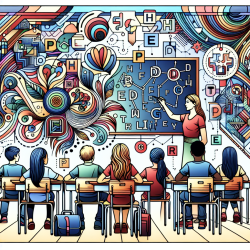Recent research has unveiled significant findings on the long-term effects of low-level blast exposure and high-caliber weapons use in military special operators. The study, titled Long-Term Effects of Low-Level Blast Exposure and High-Caliber Weapons Use in Military Special Operators, offers critical insights that can inform better practices for speech-language pathologists working with affected individuals.
The study reveals that chronic exposure to low-level blasts can lead to impaired oculomotor behaviors, which are crucial for tasks such as reading and following visual cues. By understanding these impacts, practitioners can tailor their therapeutic approaches to better support children who might have similar exposure-related issues.
Key findings from the study include:
- Impaired smooth-pursuit eye movements (SPEM), which are essential for tracking moving objects.
- Slower saccadic eye movements, indicating difficulties in quickly shifting focus between targets.
- Increased fixation percentages, suggesting that the eyes remain still more often when they should be moving.
- Higher smooth pursuit variance, indicating inefficiencies in eye movements.
These findings are not just academic; they have real-world implications for therapy. Here’s how you can use this data to improve your practice:
1. Incorporate Eye-Tracking Assessments
Utilize eye-tracking technology to objectively measure oculomotor function in children. This can help identify those who may be struggling with similar issues and tailor interventions accordingly.
2. Focus on Oculomotor Exercises
Develop exercises that specifically target smooth-pursuit and saccadic eye movements. These exercises can help improve visual tracking and reading skills, which are often compromised in individuals with TBI-related oculomotor impairments.
3. Collaborate with Neurologists
Work closely with neurologists to understand the extent of neurological alterations in affected children. This collaboration can help in developing comprehensive treatment plans that address both cognitive and motor aspects of TBI.
4. Educate and Advocate
Educate parents and educators about the potential impacts of low-level blast exposure and high-caliber weapon use on children's oculomotor functions. Advocacy for better protective measures in environments where children may be exposed to such risks is crucial.
By integrating these practices, you can enhance your therapeutic outcomes and provide more effective support for children dealing with the aftereffects of blast exposure.
To read the original research paper, please follow this link: Long-Term Effects of Low-Level Blast Exposure and High-Caliber Weapons Use in Military Special Operators.










